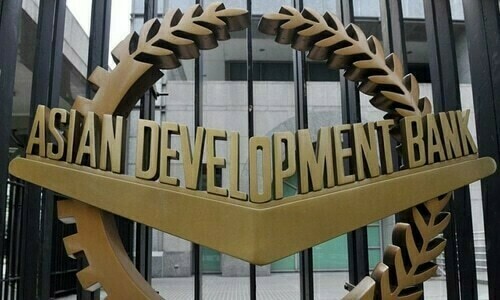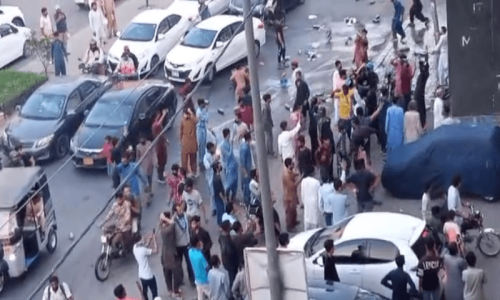TAKING precautionary steps to minimise the damage wreaked on life and property seems high on the agenda of the various tiers of government in Karachi. The chief minister has held several meetings with the relevant authorities regarding effective preparations to cope with the expected rains and flooding. The president called on the chief minister, mayor and others to take swift action to prevent flooding in Karachi neighbourhoods.
The Karachi Metropolitan Corporation has the mandate to manage the main storm drains that fall under its jurisdiction. But it is unfair to expect a lot from KMC, given its limited financial strength and technical capacity. As Karachi is likely to receive torrential rains in early August, it is time for swift action.
One reasons for urban flooding is uncoordinated real estate development, as seen in suburban Karachi. Construction has also been going on in areas strictly recommended for livestock rearing, urban farming, forestation, etc. The so-called anti-encroachment drives, in part to enable water to drain properly, have proved largely ineffective.
Much of Karachi’s development took place under the overall framework of plans and schemes carried forward from pre-independence times. The British had brought in a municipal system to plan and develop urban infrastructure. Storm drains were an essential feature. Through land surveys and the use of available means to assess rainfall and the surrounding terrain, Karachi was protected as rainwater was effectively drained. The measures were also meant to enable Karachi to withstand torrential rains. The sewerage system was planned in conjunction with a drainage plan, though both functioned independently.
Storm drains in Karachi no longer work well.
Periodic maintenance, repairs and an effective monitoring process made the system dependable. Manuals, SOPs, and projections were diligently prepared. Engineering wisdom and sound urban planning logic enabled the administration to manage Karachi well. The system became distorted when these practices were not institutionalised after independence.
Some quarters are talking about using the sewerage system for rainwater disposal. This must be reconsidered. Karachi has many informal settlements located along the edges of major nullahs. Various settlements in Lyari, Orangi, Malir and the central parts of the city are examples. While life and activities benefit from convenient access for disposing domestic waste water, urban flooding becomes a threat.
Until around three decades ago, Karachi’s storm drains, natural and manmade, helped mitigate flooding. Not anymore. The hydrology of the drains is impacted by illegal sand mining that continues relentlessly along natural water courses. Many formal outfits have also encroached upon these nullahs, creating obstacles for the free flow of water. The parking area of a major judicial office in Karachi has apparently been constructed on a drain. Unrestricted dumping of solid waste and construction debris directly into the nullahs also reduces the carrying capacity of the water flows.
Unsuitable repairs raise the level of main roads, allowing rainwater to gush into the streets. This is found in almost every neighbourhood in Karachi. A thriving informal sector uses nullahs and rivers as sites of waste recycling enterprises. With the connivance of municipal staff, much of this waste is regularly brought to the nullah sites where recyclable items are separated and organic or worthless waste is made to settle on the river beds. Thus the silt content continues to expand.
Several sites in Lasbela along the Lyari river are linked to recycling. They can be connected to the city waste management system to prevent the random disposal of solid waste in nearby water bodies. When Karachi faced torrential rains a decade ago, locations along the river and nullah were severely flooded as the water could not find a proper path for outward flow. Meanwhile, it is not clear whether mega transportation projects such as the Red Line BRT and Yellow Line BRT are synchronised with the drainage network.
With rains predicted, the local and provincial governments must identify unsafe locations across the city, and urge the public to take precautionary measures. Personnel to assist people in safeguarding life and property must be deployed without delay.
In the meantime, the longer view ought to be kept in mind. Regular cleaning of roadside drainage channels, putting a stop to the dumping of solid waste into drains/ water bodies, strengthening embankments, dredging river and nullah beds, repairing sewerage schemes and separating them from drainage, creating voluntary resettlement options for nullah dwellers and accelerating the natural absorption of water through sound floodwater retention strategies should be expedited.
The writer is an academic and researcher based in Karachi.
Published in Dawn, July 25th, 2024













































